系列文章目录
第一章 Java线程池技术应用
第二章 CountDownLatch和Semaphone的应用
第三章 Spring Cloud 简介
第四章 Spring Cloud Netflix 之 Eureka
第五章 Spring Cloud Netflix 之 Ribbon
第六章 Spring Cloud 之 OpenFeign
第七章 Spring Cloud 之 GateWay
第八章 Spring Cloud Netflix 之 Hystrix
第九章 代码管理gitlab 使用
第十章 SpringCloud Alibaba 之 Nacos discovery
第十一章 SpringCloud Alibaba 之 Nacos Config
第十二章 Spring Cloud Alibaba 之 Sentinel
第十三章 JWT
第十四章 RabbitMQ应用

文章目录
前言
一般MQ用于系统解耦、削峰使用,常见于微服务、业务活动等场景。 MQ(消息队列)在微服务、业务活动等场景中的应用主要表现为系统解耦和削峰。
系统解耦
场景描述:在微服务架构中,服务与服务之间需要通信。如果采用直接调用方式,服务间会存在强依赖关系,一个服务的改动可能引发连锁反应。
MQ作用:服务间可以通过消息队列进行通信,一个服务将消息放入队列,另一个服务从队列中取出消息进行处理。这种方式下,服务间实现了解耦,降低了相互的依赖。
削峰
场景描述:在业务活动期间,由于用户请求量短时间内剧增,可能导致系统压力过大甚至崩溃。
MQ作用:通过消息队列实现请求的缓冲。在高并发场景下,系统可以将请求放入消息队列,然后异步处理这些请求,从而平滑系统的处理负载,确保系统的稳定性。
综上所述,MQ因其独特的队列属性和消息传递模式,在分布式、微服务架构中发挥着重要的作用,提高了系统的可用性和稳定性。
1、RabbitMQ概念概念
RabbitMQ整体上是一个生产者与消费者模型,主要负责接收、存储和转发消息。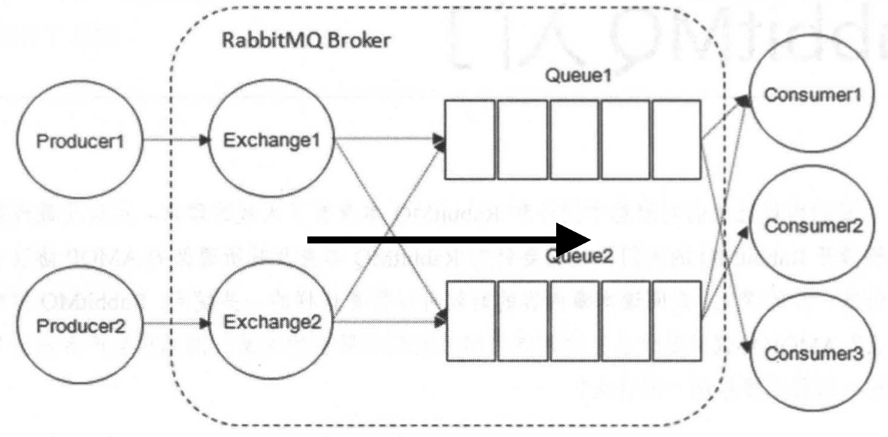
1.1、生产者和消费者
- Producer:生产者,就是投递消息的一方。消息一般可以包含2个部分:消息体和标签(Label)。消息的标签用来描述这条消息,比如一个交换器的名称和一个路由键。
- Consumer:消费者,就是接受消息的一方。消费者连接到RabbitMQ服务器,并订阅到队列上。当消费者消费一条消息时,只是消费消息的消息体(payload)
- Broker:消息中间件的服务节点。一个RabbitMQ Broker看做一台RabbitMQ服务器
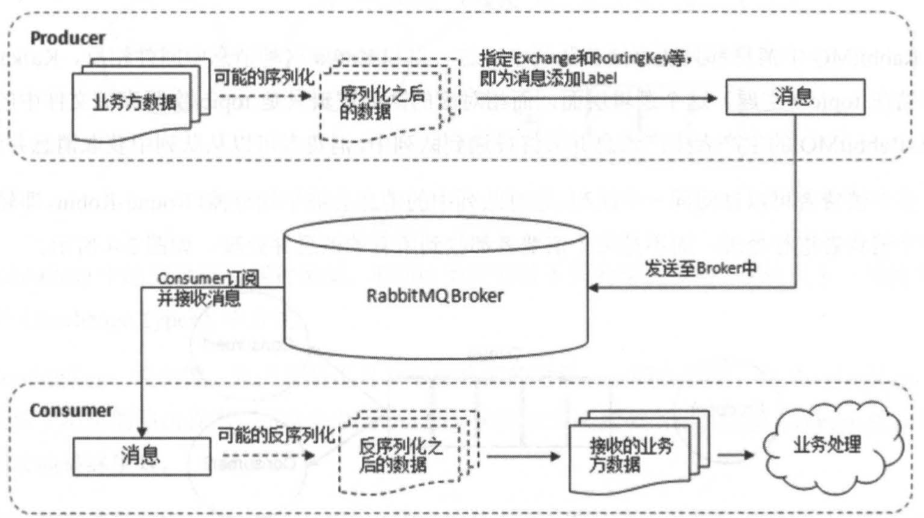
1.2、队列
Queue:队列,是RabbitMQ的内部对象,用于存储消息
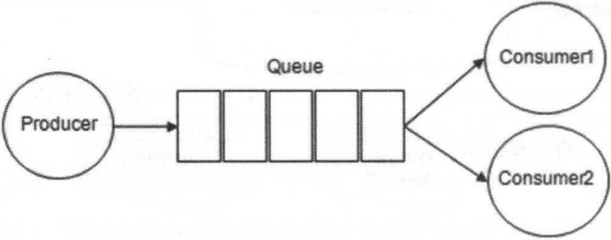
1.3、交换机、路由键、绑定
Exchange:交换器。生产者将消息发送到Exchange(交换器,通常也可以用大写的"X"来表示),有交换器将消息路由到一个或者多个队列中。如果路由不到,或许会返回给生产者,或许直接丢弃。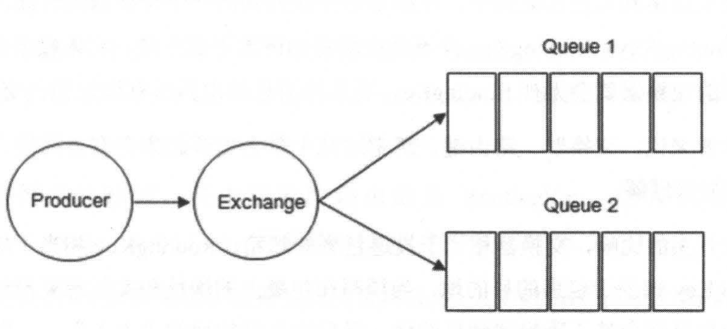
RoutingKey:路由键。生产者将消息发给交换器的时候,一般会指定一个RoutingKey,用来指定这个消息的路由规则,而这个RoutingKey需要与交换器类型和绑定键(BindingKey)联合使用才能最终生效。
Binding:绑定。RabbitMQ中通过绑定将交换器与队列联合起来,在绑定的时候一般会指定一个绑定键(BindingKey),这样RabbitMQ就知道如何正确地将消息路由到队列了。
1.3.1、交换机类型
- Direct Exchange:直连交换机,根据Routing Key(路由键)进行投递到不同队列。
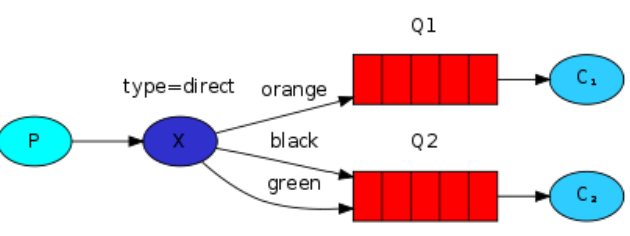
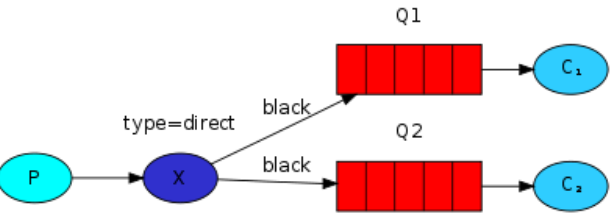
- Fanout Exchange:扇形交换机,采用广播模式,根据绑定的交换机,路由到与之对应的所有队列。
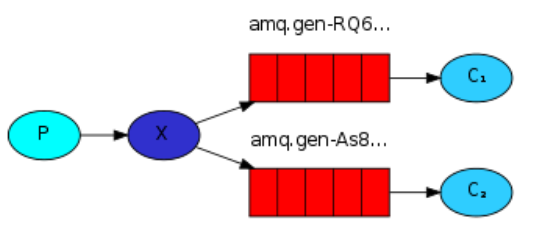
- Topic Exchange:主题交换机,对路由键进行模式匹配后进行投递,符号#表示一个或多个词,*表示一个词。
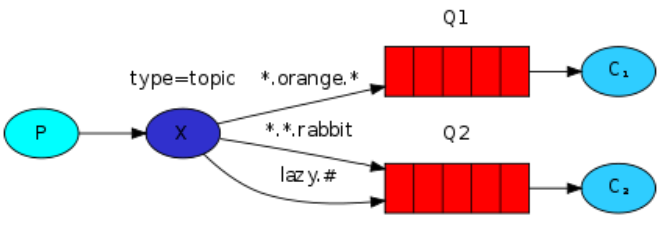
- Header Exchange:头交换机,不处理路由键。而是根据发送的消息内容中的headers属性进行匹配。
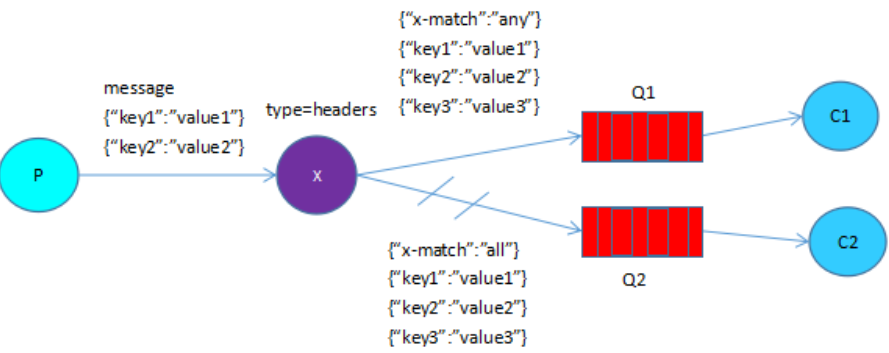 自学参考:https://blog.csdn.net/qq_38550836/article/details/95358353
自学参考:https://blog.csdn.net/qq_38550836/article/details/95358353
2、RabbitMQ运转流程
2.1、生产者发送消息流程
- 生产者连接到RabbitMQ Broker,建立一个连接(Connection),开启一个信道(Channel)
- 生产者声明一个交换器,并设置相关属性,比如交换器类型、是否持久化等
- 生产者声明一个队列并设置相关属性,比如是否排他、是否持久化、是否自动删除等
- 生产者通过路由键将交换器和队列绑定起来
- 生产者发送消息至RabbitMQ Broker,其中包含路由键、交换器等信息
- 相应的交换器根据接收到的路由键查找相匹配的队列。
- 如果找到,则将从生产者发送过来的消息存入相应的队列。
- 如果没有找到,则根据生产者配置的属性选择丢弃还是回退给生产者
- 关闭信道
- 关闭连接
2.2、消费者接收消息的过程
- 消费者连接到RabbitMQ Broker,建立一个连接(Connection),开启一个信道(Channel)。
- 消费者向RabbitMQ Broker请求消费相应队列中的消息,可能会设置相应的回调函数,以及做一些准备工作。
- 等待RabbitMQ Broker回应并投递相应队列中队列的消息,消费者接收消息。
- 消费者确认(ack)接收到的消息。
- RabbitMQ从队列中删除相应已经被确认的消息。
- 关闭信道
- 关闭连接
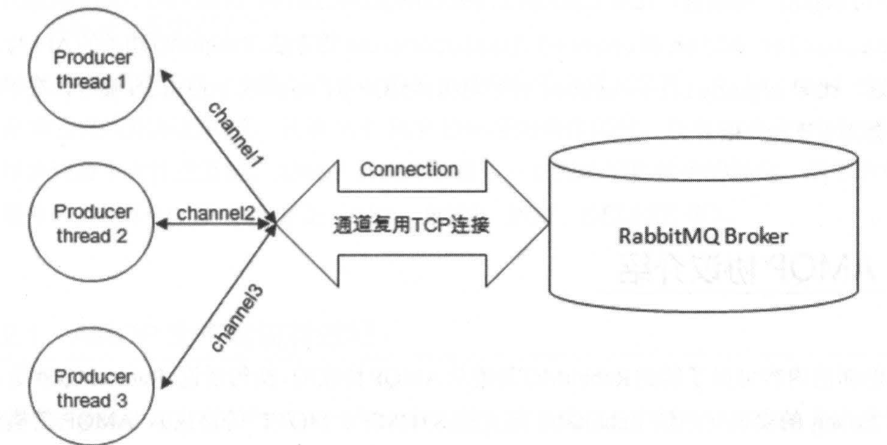 无论是生产者还是消费者,都需要和RabbitMQ Broker建立连接,这个连接就是一条TCP连接,也就是Connection。一旦TCP连接建立起来,客户端紧接着可以创建一个AMQP信道(Channel),每个信道都会被指派一个唯一的ID。信道是建立在Connection之上的虚拟连接,RabbitMQ处理的每条AMQP指令都是通过信道完成的。
无论是生产者还是消费者,都需要和RabbitMQ Broker建立连接,这个连接就是一条TCP连接,也就是Connection。一旦TCP连接建立起来,客户端紧接着可以创建一个AMQP信道(Channel),每个信道都会被指派一个唯一的ID。信道是建立在Connection之上的虚拟连接,RabbitMQ处理的每条AMQP指令都是通过信道完成的。
2.3、AMQP协议
Advanced Message Queuing Protocol,一个提供统一消息服务的应用层标准高级消息队列协议,是应用层协议的一个开放标准,为面向消息的中间件设计。基于此协议的客户端与消息中间件可传递消息,并不受客户端/中间件不同产品,不同的开发语言等条件的限制。Erlang中的实现有RabbitMQ等
- Broker:接收和分发消息的应用,RabbitMQ 就是 Message Broker
- Virtual Host:虚拟 Broker,将多个单元隔离开
- Connection:publisher / consumer 和 broker 之间的 tcp 连接
- Channel:connection 内部建立的逻辑连接,通常每个线程创建单独的 channel
- Routing key:路由键,用来指示消息的路由转发,相当于快递的地址
- Exchange:交换机,相当于快递的分拨中心
- Queue:消息队列,消息最终被送到这里等待 consumer 取走
- Binding:exchange 和 queue 之间的虚拟连接,用于 message 的分发依据
3、RabbitMQ windows安装
3.1、下载
https://github.com/erlang/otp/releases/download/OTP-25.2/otp_win64_25.2.exe
https://github.com/rabbitmq/rabbitmq-server/releases/download/v3.11.5/rabbitmq-server-3.11.5.exe
3.2、安装
配置环境变量
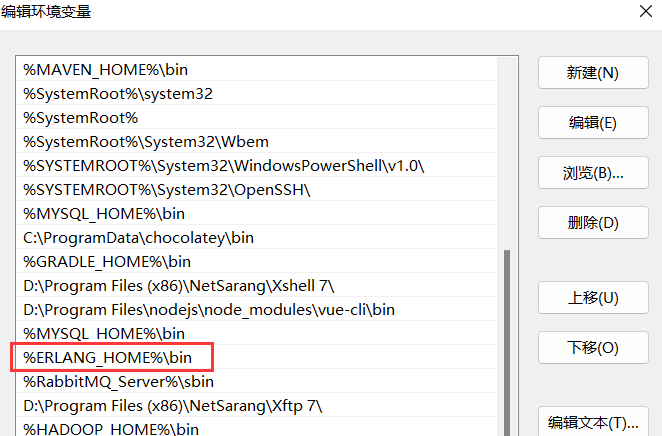
cd D:\Program Files\RabbitMQ Server\rabbitmq_server-3.11.5\sbin
开启rabbitmq-plugins插件
rabbitmq-plugins enable rabbitmq_management
打开地址
http://127.0.0.1:15672/
输入用户名/密码:guest/guest
4、Spring Boot 整合RabbitMQ
4.1、在user-service添加依赖
<dependency><groupId>org.springframework.boot</groupId><artifactId>spring-boot-starter-amqp</artifactId></dependency>
4.2、配置文件添加
spring:rabbitmq:host: 127.0.0.1
port:5672username: guest
password: guest
4.3、增加RabbitMQ配置类
packagecom.xxxx.user.config;importorg.springframework.amqp.core.*;importorg.springframework.beans.factory.annotation.Qualifier;importorg.springframework.context.annotation.Bean;importorg.springframework.context.annotation.Configuration;@ConfigurationpublicclassRabbitMQConfig{/******************direct**********************//**
* 创建direct队列
* @return
*/@BeanpublicQueuedirectQueue(){returnnewQueue("directQueue");}/**
* 创建direct交换机
* @return
*/@BeanpublicDirectExchangedirectExchange(){returnnewDirectExchange("directExchange");}/**
* 把队列和交换机绑定在一起
* @param queue
* @param directExchange
* @return
*/@BeanpublicBindingbindingDirect(@Qualifier("directQueue")Queue queue,DirectExchange directExchange){returnBindingBuilder.bind(queue).to(directExchange).with("routingKey");}/******************topic**********************/@BeanpublicQueuetopicQuerue1(){returnnewQueue("topicQuerue1");}@BeanpublicQueuetopicQuerue2(){returnnewQueue("topicQuerue2");}@BeanpublicTopicExchangetopicExchange(){returnnewTopicExchange("topicExchange");}@BeanpublicBindingbindingTopic1(@Qualifier("topicQuerue1")Queue queue,@Qualifier("topicExchange")TopicExchange topicExchange){returnBindingBuilder.bind(queue).to(topicExchange).with("topic.key1");}/**
* 通配符:* 表示一个词,# 表示零个或多个词
* @param queue
* @param topicExchange
* @return
*/@BeanpublicBindingbindingTopic2(@Qualifier("topicQuerue2")Queue queue,@Qualifier("topicExchange")TopicExchange topicExchange){returnBindingBuilder.bind(queue).to(topicExchange).with("topic.#");}/******************fanout**********************/@BeanpublicQueuefanoutQueue1(){returnnewQueue("fanoutQueue1");}@BeanpublicQueuefanoutQueue2(){returnnewQueue("fanoutQueue2");}@BeanpublicQueuefanoutQueue3(){returnnewQueue("fanoutQueue3");}@BeanpublicFanoutExchangefanoutExchange(){returnnewFanoutExchange("fanoutExchange");}@BeanpublicBindingbindingFanout1(@Qualifier("fanoutQueue1")Queue queue,@Qualifier("fanoutExchange")FanoutExchange fanoutExchange){returnBindingBuilder.bind(queue).to(fanoutExchange);}@BeanpublicBindingbindingFanout2(@Qualifier("fanoutQueue2")Queue queue,@Qualifier("fanoutExchange")FanoutExchange fanoutExchange){returnBindingBuilder.bind(queue).to(fanoutExchange);}@BeanpublicBindingbindingFanout3(@Qualifier("fanoutQueue3")Queue queue,@Qualifier("fanoutExchange")FanoutExchange fanoutExchange){returnBindingBuilder.bind(queue).to(fanoutExchange);}}
4.4、新增消费监听类
packagecom.xxxx.user.consumer;importcom.xxxx.drp.common.entity.UserInfo;importlombok.extern.slf4j.Slf4j;importorg.springframework.amqp.rabbit.annotation.RabbitHandler;importorg.springframework.amqp.rabbit.annotation.RabbitListener;importorg.springframework.stereotype.Component;@Component@Slf4j@RabbitListener(queues ="directQueue")publicclassDataDirectReceiver{@RabbitHandlerpublicvoidprocess(String data){
log.info("收到directQueue队列信息:"+ data);}@RabbitHandlerpublicvoidprocess(UserInfo data){
log.info("收到directQueue队列信息:"+ data);}}
packagecom.xxxx.user.consumer;importcom.xxxx.common.entity.UserInfo;importlombok.extern.slf4j.Slf4j;importorg.springframework.amqp.rabbit.annotation.RabbitHandler;importorg.springframework.amqp.rabbit.annotation.RabbitListener;importorg.springframework.stereotype.Component;@Component@Slf4j@RabbitListener(queues ={"topicQuerue1","topicQuerue2"})publicclassDataFanoutReceiver{@RabbitHandlerpublicvoidprocess(String data){
log.info("收到topicQuerue队列信息:"+ data);}@RabbitHandlerpublicvoidprocess(UserInfo data){
log.info("收到topicQuerue队列信息:"+ data);}}
packagecom.xxxx.user.consumer;importcom.xxxx.common.entity.UserInfo;importlombok.extern.slf4j.Slf4j;importorg.springframework.amqp.rabbit.annotation.RabbitHandler;importorg.springframework.amqp.rabbit.annotation.RabbitListener;importorg.springframework.stereotype.Component;@Component@Slf4j@RabbitListener(queues ={"fanoutQueue1","fanoutQueue2","fanoutQueue3"})publicclassDataTopicReceiver{@RabbitHandlerpublicvoidprocess(String data){
log.info("收到topicQuerue队列信息:"+ data);}@RabbitHandlerpublicvoidprocess(UserInfo data){
log.info("收到topicQuerue队列信息:"+ data);}}
4.5、消息生产端
packagecom.xxxx.user;importcom.xxxx.common.entity.UserInfo;importorg.junit.jupiter.api.Test;importorg.springframework.amqp.rabbit.core.RabbitTemplate;importorg.springframework.beans.factory.annotation.Autowired;importorg.springframework.boot.test.context.SpringBootTest;@SpringBootTestpublicclassDataSender{@AutowiredprivateRabbitTemplate rabbitTemplate;@TestpublicvoidsendDirect(){UserInfo userInfo =newUserInfo();
userInfo.setUserAccount("tiger");
userInfo.setPassword("12345");this.rabbitTemplate.convertAndSend("directExchange","routingKey",userInfo);}@TestpublicvoidsendTopic(){this.rabbitTemplate.convertAndSend("topicExchange","topic.key2","Hello world topic");}@TestpublicvoidsendFanout(){this.rabbitTemplate.convertAndSend("fanoutExchange","","Hello world topic");}}
版权归原作者 青花锁 所有, 如有侵权,请联系我们删除。
